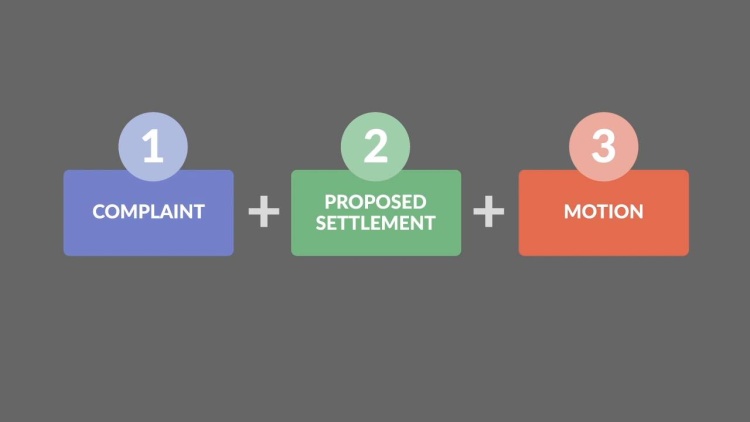Amchem Products, Inc. v. Windsor
United States Supreme Court
521 U.S. 591 (1997)

- Written by Josh Lee, JD
Facts
A series of asbestos claims were brought before the Judicial Panel on Multi-District Litigation. Due to the volume and complexity of the asbestos litigation, the judicial panel decided to transfer all asbestos claims filed in federal courts but not yet on trial to the Federal District Court for the Eastern District of Pennsylvania. After this consolidation, counsel for Windsor and other victims of asbestos exposure (plaintiffs) and for Amchem Products, Inc., and other asbestos manufacturer (defendants) reached a partial global settlement. The terms of the settlement were that a class consisting of all individuals with potential asbestos claims who had not yet filed lawsuits would be certified pursuant to Federal Rule of Civil Procedure 23(b)(3) (FRCP) for purposes of settlement only. The purpose of the proposed settlement was to attempt to create an administrative structure that would provide set compensation for certain asbestos-related diseases. The district court approved the settlement plan and certified the proposed class. Upon appeal, the United States Court of Appeals for the Third Circuit reversed the lower court’s approval of the settlement plan, finding that the requirements of class certification had not been met. Specifically, the Third Circuit held that while a class may be certified for the sole purpose of settlement, all formal certification requirements outlined in FRCP 23 must still be met, as though the case were going to trial. The circuit court found an error with this certification because it believed the class failed to demonstrate that common issues of fact predominated over other questions, as required under FRCP 23(b)(3), or that the named plaintiffs would "fairly and adequately protect the interests of the class." Windsor petitioned the United States Supreme Court for certiorari, which was granted.
Rule of Law
Issue
Holding and Reasoning (Ginsburg, J.)
Concurrence/Dissent (Breyer, J.)
What to do next…
Here's why 907,000 law students have relied on our case briefs:
- Written by law professors and practitioners, not other law students. 47,100 briefs, keyed to 996 casebooks. Top-notch customer support.
- The right amount of information, includes the facts, issues, rule of law, holding and reasoning, and any concurrences and dissents.
- Access in your classes, works on your mobile and tablet. Massive library of related video lessons and high quality multiple-choice questions.
- Easy to use, uniform format for every case brief. Written in plain English, not in legalese. Our briefs summarize and simplify; they don’t just repeat the court’s language.





